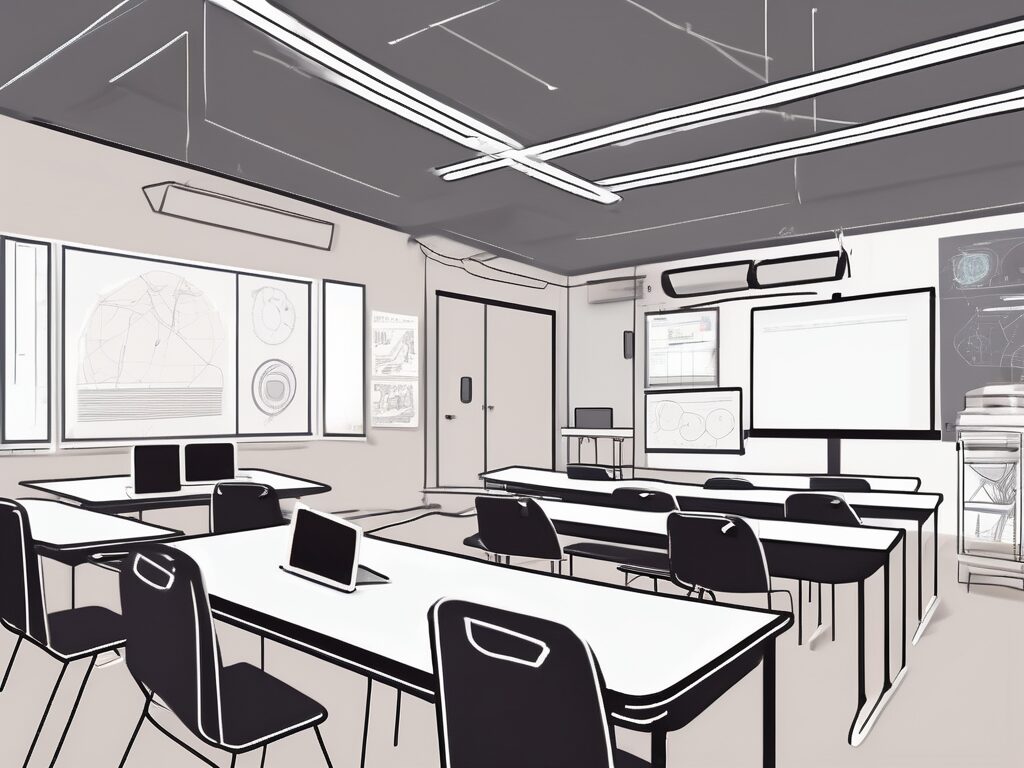In the bustling city-state of Singapore, classrooms are not just spaces filled with desks and chalkboards. They’re dynamic, technologically advanced environments where innovative teaching methods are employed to shape the minds of the future. One such method is the International Postgraduate Certificate in Education (IPGCE), a globally recognised qualification for educators. This article will delve into four key methods of integrating technology into Singapore classrooms with an IPGCE.
1. Interactive Whiteboards
Interactive whiteboards have revolutionised the traditional concept of teaching. These high-tech boards, which are essentially large touch screens, allow teachers to present information in a more engaging and interactive way. With the ability to display videos, graphics, and even interactive quizzes, these whiteboards make learning a more immersive experience.
For instance, a geography teacher could use an interactive map to teach students about different countries. By clicking on a country, students can access information about its climate, culture, and history. This not only makes the learning process more engaging but also helps students retain information more effectively.
Comparing Traditional and Interactive Whiteboards
Compared to traditional chalkboards or whiteboards, interactive whiteboards offer a more dynamic teaching tool. While traditional boards rely on the teacher’s ability to illustrate and explain concepts, interactive whiteboards can display complex diagrams, animations, and other visual aids that can enhance understanding.
Moreover, interactive whiteboards can be integrated with other classroom technologies, such as tablets and laptops. This allows for a more collaborative learning environment where students can interact with the board from their own devices.
2. Virtual Reality (VR) in Education
Virtual Reality (VR) is no longer just a tool for gamers. It’s making its way into classrooms, offering a whole new dimension to education. With VR, students can explore virtual environments, conduct experiments, and even travel through time, all from the comfort of their classroom.
For example, a history teacher could use VR to transport students back to Ancient Egypt. Students can explore pyramids, interact with historical figures, and witness historical events firsthand. This immersive experience can make learning history more exciting and memorable.
VR vs Traditional Learning Tools
Compared to textbooks and videos, VR offers a more immersive and interactive learning experience. While textbooks and videos can provide detailed information, they lack the interactive element that VR offers. With VR, students can actively participate in the learning process, rather than passively absorbing information.
Moreover, VR can cater to different learning styles. Visual learners can benefit from the realistic graphics, while kinesthetic learners can learn by interacting with the virtual environment. This makes VR a versatile tool that can enhance learning for all students.
3. Online Learning Platforms
Online learning platforms have become a staple in modern education. These platforms offer a plethora of resources, including video lessons, interactive quizzes, and discussion forums. With an IPGCE, teachers can effectively integrate these platforms into their teaching methods to enhance student learning.
For example, a science teacher could use an online platform to supplement classroom lessons. Students can watch video lessons at home to reinforce what they’ve learned in class. They can also take quizzes to test their understanding and participate in discussion forums to engage with their peers.
Online Learning Platforms vs Traditional Homework
Compared to traditional homework, online learning platforms offer a more engaging and flexible learning experience. Traditional homework often involves repetitive tasks that can be tedious for students. On the other hand, online platforms offer a variety of activities, including interactive quizzes and games, that can make learning more enjoyable.
Moreover, online platforms provide instant feedback, allowing students to identify their mistakes and learn from them immediately. This immediate feedback can enhance learning and improve academic performance.
4. Mobile Learning
With the ubiquity of smartphones and tablets, mobile learning has become a viable method of education. Mobile learning involves using mobile devices to access educational content, allowing students to learn anytime, anywhere.
For instance, a language teacher could use a mobile app to teach vocabulary. Students can use the app to learn new words, practice pronunciation, and test their understanding through interactive quizzes. This can supplement classroom lessons and provide additional practice for students.
Mobile Learning vs Traditional Learning Methods
Compared to traditional learning methods, mobile learning offers greater flexibility and convenience. Traditional methods often require students to be physically present in a classroom at a specific time. However, with mobile learning, students can learn at their own pace, in their own time, and in a location that suits them.
Moreover, mobile learning can provide personalised learning experiences. Many mobile learning apps adapt to the learner’s progress, offering more challenging content as the learner’s proficiency improves. This can make learning more effective and enjoyable.
In conclusion, technology has transformed education in Singapore classrooms with an IPGCE. From interactive whiteboards to mobile learning, these methods offer engaging and effective ways to enhance student learning. As technology continues to evolve, we can expect to see even more innovative teaching methods in the future.
Transform Your Teaching Career with IPGCE
Embrace the future of education and overcome the barriers to international teaching success with the IPGCE. Whether you’re facing qualification challenges, seeking career advancement, or looking to join a global professional community, the IPGCE is your gateway to achieving your goals. Benefit from a program that not only enhances your credentials but also provides a substantial boost to your career progression, salary, and adaptability in global education systems. Don’t let isolation or the struggle to balance professional development with work commitments hold you back. Join the UK’s #1 Teacher Training Course and take the next step in your educational journey. Enroll in the IPGCE program today and transform your teaching career!

